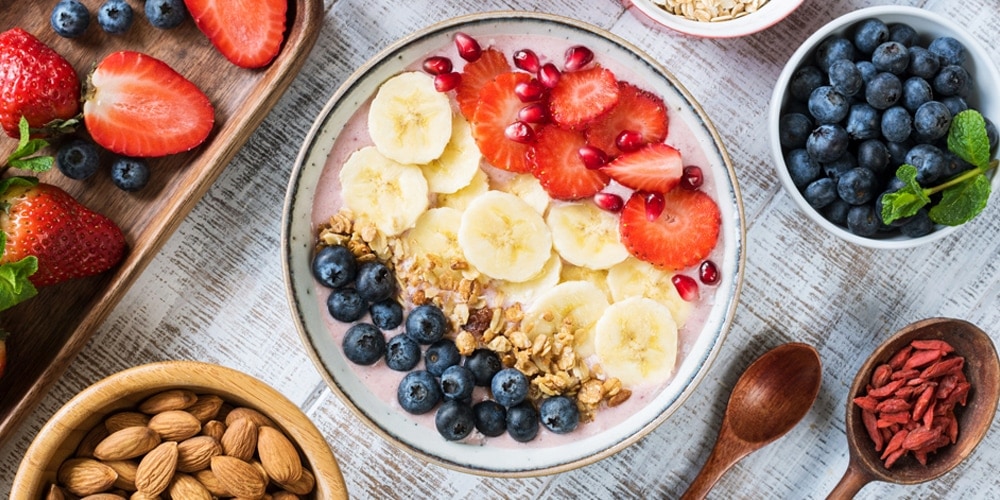
As well as giving you energy to start the day, breakfast plays a crucial role in powering your brain. So it adds up that a healthy breakfast habit can help children and teens do better at school.
Can You Eat Your Way to Better Grades?
An Australian study of 824 children in grades three to seven found breakfast was critical for school performance. Specifically, it showed the combination of regularly eating breakfast—especially a good quality breakfast—and being active boosted both literacy and numeracy skills. It also helps kids to beat the sometimes mid-morning hunger pangs.
What to Eat Before Exams?
If you have teens heading into exam time, be sure to keep up good breakfast habits. Feeding the brain is essential for good cognitive function and has been shown to help with attention, memory, recall, and academic performance.
The trouble is that, as kids get older, they are more likely to skip breakfast, missing essential nutrients that become even more important during puberty, when rapid growth spurts kick in.
A recent study of teens in the United Kingdom looked at their breakfast habits and their exam results. It found students who rarely ate breakfast achieved nearly two grades lower than those who rarely missed breakfast.
So what’s the best breakfast before an exam? There’s emerging evidence that a low glycemic index (GI) breakfast helps provide a slow release of energy and steady blood sugar levels for optimal cognitive function.
Simple Breakfast Gets the Tick
A bowl of cereal before your child rushes off to school is a great start! A study of Australian data showed children who started their day with breakfast cereal had the highest intake of dietary fiber and nutrients, including calcium and iron—essential nutrients Australian and New Zealand children fall short on.
Kids’ Breakfast Tips
Good quality breakfast. Think well-balanced, nourishing, and delicious. Try wholegrain cereal with dairy or soy milk topped with fruit or blended as a smoothie; wholegrain toast with peanut butter; baked beans, and avocado on toast with a grilled tomato; or a berry breakfast trifle.
Low GI. A low GI breakfast with slow-release energy could include low GI breakfast cereal topped with unsweetened yogurt and berries; muesli topped with canned fruit and nuts; avocado, and eggs on sourdough toast; or chia pudding made with soy milk and topped with sliced banana and cinnamon.
Stay hydrated. Don’t forget the drinks! This is just as important as the food. Evidence suggests dehydration impairs cognitive function leading to poor exam performance. Water is always a winner.
The original version of this story was posted by Adventist Record.